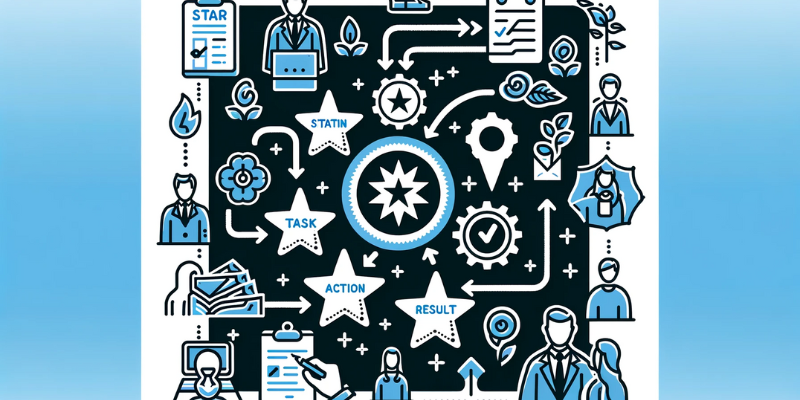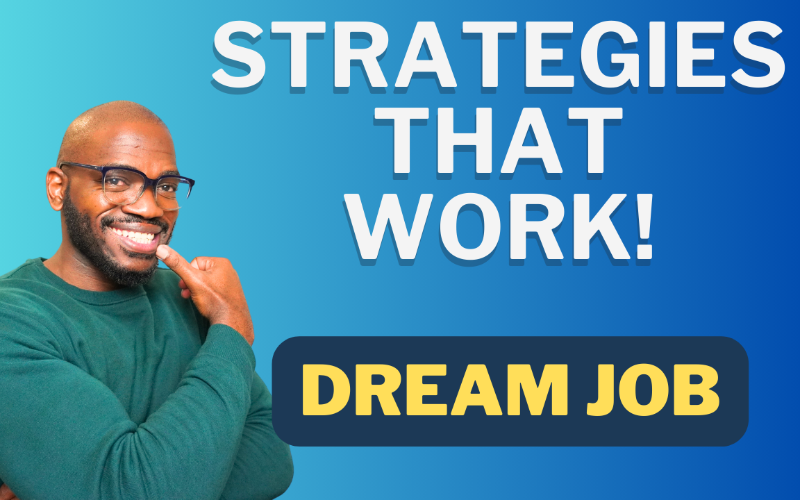Introduction
This comprehensive guide is designed to help you navigate and excel in behavioral interviews, a critical component of the job-seeking process. Behavioral interviews focus on past behavior as an indicator of future performance, making them a favorite among recruiters to gauge a candidate's fit for a role. This article will provide you with an arsenal of techniques, strategies, and example responses to ensure you present your best self in your next interview.
What Are Behavioral Interviews? Unlike traditional interviews, which often focus on theoretical questions, behavioral interviews delve into your past experiences. They help interviewers understand how you've handled situations in the workplace and what you've learned from them.
In the following sections, we'll explore everything from the basics of behavioral interviews to advanced strategies for crafting impactful responses. Whether you're a first-time job seeker or an experienced professional, this toolkit is your companion in turning your interview challenges into opportunities.

Understanding Behavioral Interviews
The Essence of Behavioral Interviews
Behavioral interviews are a technique used by employers to understand how a candidate has behaved in past professional situations. The premise is simple yet powerful: past behavior is the best predictor of future behavior. By examining how you've navigated specific circumstances in the past, interviewers can gauge how you might perform in the future.
Distinguishing Behavioral Interviews from Traditional Ones
-
Focus on Real Experiences: Unlike traditional interviews that might ask hypothetical questions, behavioral interviews require you to draw on real-life experiences. This approach provides a more accurate picture of your abilities and fit for the role.
-
Structured Approach: These interviews often follow a structured format, with questions designed to uncover specific competencies or skills.
Industries and Roles Favoring Behavioral Interviews
Behavioral interviews are particularly common in industries like healthcare, technology, finance, and education, but their usage is widespread and growing across various sectors. Roles that require strong interpersonal skills, decision-making abilities, and leadership qualities often rely heavily on this interview style.

Preparing for Behavioral Interviews
Research and Preparation: Your Keys to Success
Thorough preparation can significantly enhance your performance in a behavioral interview. Here's how to get started:
-
Understand the Employer: Research the company's culture, values, and mission. This knowledge will help you tailor your responses to align with what the company is looking for.
-
Analyze the Job Description: Identify the skills and competencies listed in the job description. These are clues to the kinds of behaviors the interviewer may inquire about.
Anticipating Potential Questions
Competency-Based Approach: Questions in behavioral interviews are often based on key competencies such as teamwork, leadership, problem-solving, and adaptability. Prepare stories that demonstrate these qualities.
Example Questions Table:
|
Competency |
Potential Question |
|---|---|
|
Teamwork |
Describe a time when you had to collaborate with a difficult team member. |
|
Leadership |
Tell me about a time when you had to lead a project under tight deadlines. |
|
Problem-Solving |
Give an example of a challenging problem you faced and how you solved it. |

The STAR Technique Explained
Structuring Your Responses Effectively
The STAR technique is a structured method of answering behavioral interview questions by discussing the specific Situation, Task, Action, and Result of the experience you are describing.
-
Situation: Set the scene. Describe the context within which you performed a task or faced a challenge at work.
-
Task: Explain the actual task that was required as a result of the situation.
-
Action: Elaborate on what actions you took to address the task.
-
Result: Share the outcomes of your actions. Highlight achievements and what you learned.
Using STAR in Practice
Example: If asked about a time you demonstrated leadership, start by describing the situation (e.g., a team project falling behind schedule), detail the task you were faced with (e.g., needing to reorganize the project workload), explain the actions you took (e.g., delegating tasks, setting new deadlines), and conclude with the result (e.g., project completion on time, increased team efficiency).
Common Behavioral Interview Questions and Answers
Navigating Frequently Asked Questions
Behavioral interview questions can vary widely, but many focus on common themes. Below is a list of typical questions with sample answers using the STAR technique.
-
Question: Describe a situation where you had to work under pressure.
-
Sample Answer: Situation: During my tenure at XYZ Corp, our team faced a tight deadline for a major project. Task: As the project lead, it was my responsibility to ensure timely completion. Action: I reorganized the team's workload, set daily goals, and maintained open communication for progress updates. Result: We completed the project two days ahead of schedule, receiving commendation from the management.
-
-
Question: Give an example of a goal you reached and tell me how you achieved it.
-
Sample Answer: Situation: Last year, I aimed to improve our customer satisfaction ratings. Task: My goal was to increase the ratings by 15%. Action: I implemented a new feedback system and trained the team on customer engagement strategies. Result: Within six months, we saw a 20% increase in customer satisfaction scores.
-
-
Question: Talk about a time you had to adapt to a significant change at work.
-
Sample Answer: Situation: When our company merged with another, many processes changed. Task: I had to quickly adapt to the new systems and workflows. Action: I took the initiative to attend training sessions and collaborated closely with the new team members. Result: This proactive approach helped me adapt swiftly, and I was recognized for my flexibility and teamwork.
-
Tailoring Your Answers
-
Personal Experience: Use your own experiences to answer these questions. Authenticity makes your responses more relatable and impactful.
-
Relevance to the Job: Always tie your answers back to the skills and qualities required for the job you're interviewing for.

Handling Difficult Questions
Strategies for Challenging Situations
Sometimes, you may encounter questions that are tricky or uncomfortable. Here’s how to handle them:
-
Expect the Unexpected: Prepare for a range of scenarios, including discussing failures or conflicts.
-
Stay Calm and Composed: Take a moment to think before you respond. It's okay to ask for a moment if you need it.
Turning Negatives into Positives
When discussing a failure or challenge, focus on what you learned from the experience and how it has helped you grow.
Example: If asked about a failure, describe the situation and task, focus on the action you took (even if it didn't lead to the desired result), and conclude with what you learned and how you've applied that learning since.
For a deep dive on handling difficult questions like a pro, see Navigating Tricky Interview Situations: Tips for Confidence and Success
Body Language and Non-Verbal Communication
The Silent Communicator in Interviews
Your body language can speak volumes during an interview. Here are some tips to ensure your non-verbal cues align with your words:
-
Posture: Sit up straight but comfortably. It conveys confidence and attentiveness.
-
Eye Contact: Maintain regular but natural eye contact. It shows you are engaged and confident.
-
Gestures: Use hand gestures moderately to emphasize points, but avoid overdoing it.
Avoiding Non-Verbal Mistakes
-
Fidgeting: Avoid excessive fidgeting as it can be distracting and convey nervousness.
-
Facial Expressions: Be aware of your expressions. Smiling appropriately can make you appear approachable and positive.
Here's a comprehensive guide on body language hacks: Powerful Body Language Hacks for a Winning Interview Presence
Post-Interview Strategies
Reflecting and Following Up Post-Interview
Once the interview is over, your focus should shift to reflection and follow-up actions. These steps are crucial in leaving a lasting impression and setting the stage for potential success.
Assess your own performance. Consider what went well and areas where you could improve. This self-evaluation is vital for continuous improvement.
Send a personalized thank-you email or note within 24 hours of the interview. Express gratitude for the opportunity and reiterate your interest in the position.
Crafting an Effective Follow-Up
-
Be Concise and Professional: Your follow-up should be brief and to the point while maintaining a professional tone.
-
Reaffirm Your Interest: Use this opportunity to restate why you are a good fit for the role and how enthusiastic you are about the possibility of joining the team.
Analyzing Feedback for Future Improvement
If you're not selected, don't hesitate to ask for feedback. This can provide valuable insights for future interviews.
Use any feedback you receive to refine your interview techniques, from your responses to your body language.
Practicing Your Behavioral Interview Skills
Role-Playing and Review
Practicing is key to mastering behavioral interview techniques. Here are some effective ways to practice:
-
Role-Playing: Conduct mock interviews with friends, family, or mentors. Simulating the interview environment can help you become more comfortable with your responses.
-
Recording and Reviewing: Record your practice sessions and review them. Pay attention to your language, clarity of your responses, and non-verbal cues.
Utilizing Online Resources
Online platforms offer mock interview scenarios and feedback services. Taking advantage of these resources can provide a diverse range of practice scenarios.
Additional Tips and Tricks
Enhancing Your Interview Performance
Here are some extra tips to help you excel in your next behavioral interview:
-
Stay Calm and Composed: Practice stress-relief techniques like deep breathing to stay calm during the interview.
-
Time Management: Be concise in your responses. Aim to keep your answers to under two minutes to maintain the interviewer's attention.
-
Asking Questions: Prepare a list of questions to ask the interviewer. This shows your interest in the role and the company.
Quote: "The most important thing in communication is to hear what isn't being said." - Peter Drucker
Conclusion
Mastering the Art of Behavioral Interviews
As we conclude, remember that mastering behavioral interviews is a skill that can be developed over time. Each interview is a learning experience and an opportunity to refine your technique. Stay authentic, be prepared, and use your experiences to demonstrate why you are the ideal candidate for the role.
Begin practicing these techniques today, and approach your next interview with confidence. Remember, each interview is a step forward in your career journey, regardless of the outcome.









